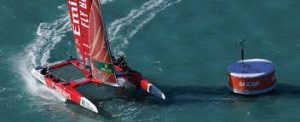EU reinforces election observation in Bolivia with 50 short-term observers

Brussels: The European Union Election Observation Mission has deployed a group of 50 short-term observers across Bolivia.
This new group of observers joins the 32 long-term observers who have been carrying out their duties in all the country’s departments since 25 July.
A delegation from the European Parliament will also join the Mission, comprising seven representatives from different political groups in the European Parliament. In addition, on 17 August, members of the diplomatic missions of EU countries present in Bolivia will join the Mission. In this way, the European Union expects to have over 120 observers for the general elections on 17 August, including nationals from Canada, Norway, and Switzerland.
On the occasion of this deployment, the Head of Mission, MEP Davor Stier, expressed his confidence “that the presence of the European Union will provide the Bolivian electorate with a solid basis to increase trust in the electoral process and contribute to ensuring that the elections are conducted in a transparent and inclusive manner.” He added that this effort reflects the European Union’s ongoing commitment to strengthening democracy and supporting the electoral process in Bolivia.
Following the methodology of EU election observation missions, the short-term observers have undergone an intensive two-day training session in La Paz before deployment. They have been trained in security, logistics, first aid, and in matters specifically related to voting operations. The EU EOM operates independently, and its observers are bound by a strict Code of Conduct that ensures the neutrality and impartiality of their work.
This new group is organised into 25 teams, who will carry out their observation work in all the country’s departments. The observers will focus on systematically monitoring the conduct of voting operations both inside and outside polling stations, without interfering in the voting process. This includes the opening of polling stations, the voting process, the closing of polls, the counting, and the tabulation.
The European Union observers will use standarised digital forms to record their observations, thus ensuring the uniform and objective collection of data. These forms will be sent to the central base in La Paz for analysis and review, feeding into the overall assessment and helping to determine the extent to which the electoral process complies with Bolivian law and with international standards on democratic elections to which Bolivia has committed.





